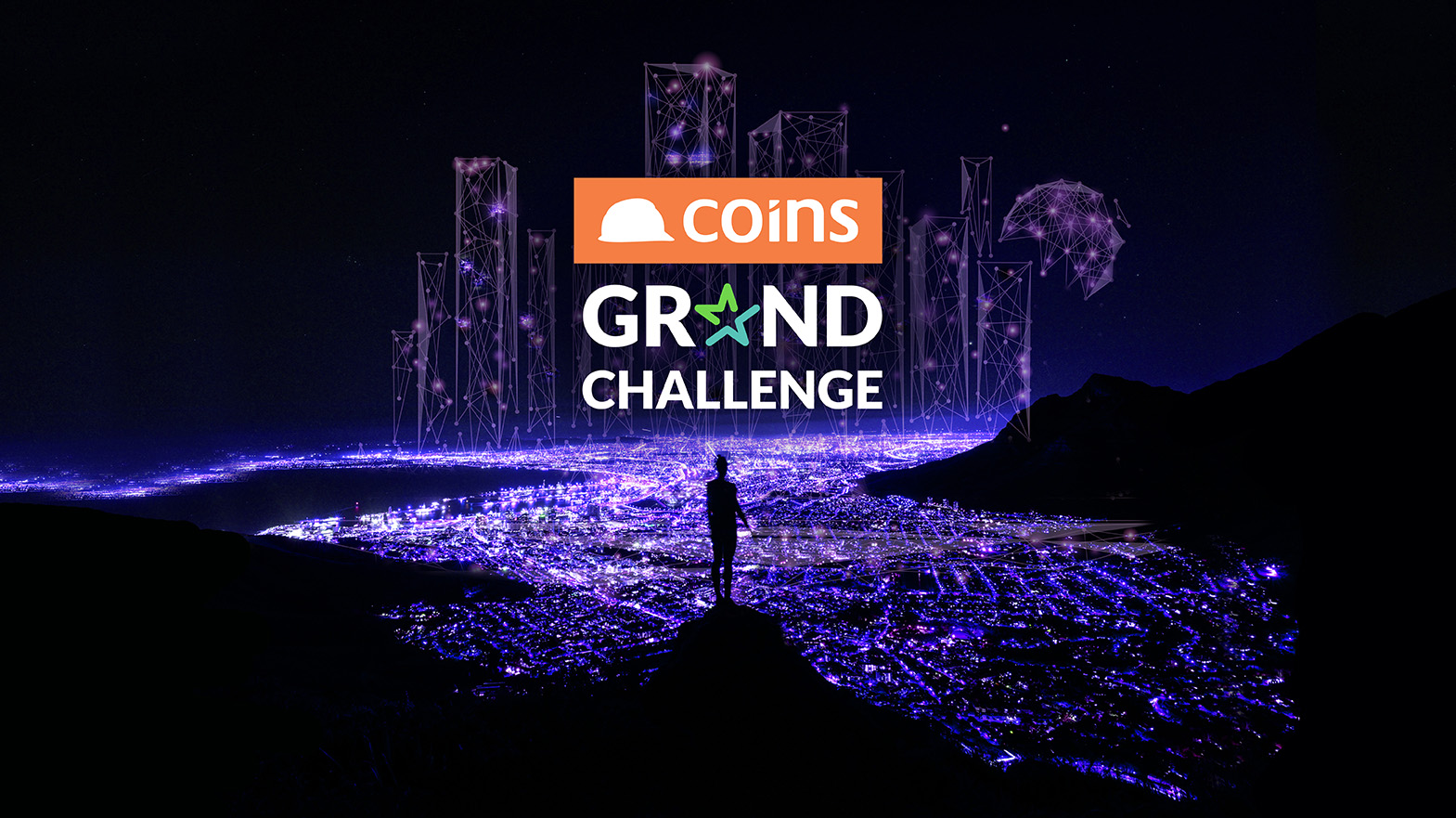
Ideas to improve construction have flooded in from all over the world for the 2021 COINS Grand Challenge, a global competition organised by Construction Industry Solutions Ltd (COINS) to encourage innovation.
An inflatable safety jacket and insulating foam grown from fungi are just two of the inventions proposed by 12 finalists hailing from Sri Lanka, India, Russia, UK, Canada, Indonesia and Zimbabwe (see complete list below).
“Every year the number and quality of entries for the Grand Challenge gets stronger and stronger,” said COINS chief executive Robert Brown. “It’s great to see the level of interest in new and emerging technology in the construction industry continue to grow.”
The competition has two categories: the Open Competition for professionals and the Student competition for undergraduates.
Open Competition for professionals
Intelligent, clean air
Data-driven, predictive software for air distribution systems that prevents the spread of contamination and infection, while reducing operational and maintenance costs.
• Natalia Mykhaylova, chief executive, WeavAir
Automating structural timber design
Daisy (Design AI SYstems) allows structural engineers and architects to find the most optimal, production-ready and code-compliant timber design with a click of a button.
• Mario Selvaraj, co-founder, Daisy
Insulation grown from waste and fungi
Custom-engineered insulation made with forestry waste and fungi that is carbon-negative and feels and performs like foam. Beneficial for stakeholders needing to comply with embodied and operational carbon regulations.
• Valentina Dipietro, founder, Mykor
Preventing formwork overload
Loadtag will monitor live loads on formwork during concrete pouring to help prevent overloading and potentially catastrophic failure.
• Kaz Hayat, managing director, Trent Energy
High-density gypsum
Allows gypsum to be the main building material instead of concrete, ceramics, steel and wood. Gypsum has the lowest CO2 footprint and is completely recyclable. “Our technology allows us to build 10 times faster, 2 times cheaper, better, more durable and greener!”
• Igor Stavrulov, chief executive and founder, Amatec
No more dust from drilling
The XtraHand is a universal hands free vacuum attachment that works with all drill bit types on all flat surfaces that removes airborne dust particles along with any larger debris when drilling holes.
• Alan Gillett, director, DrillBuddy UK
Student competition for undergraduates
Self-healing bacteria concrete
Limestone-producing bacterial spores are activated when cracks form, exposing the spores to air and moisture. The bacteria consume calcium acetate and produce limestone crystals that fill the crack. CO2-removal qualities can be given by using cyanobacteria, which have chlorophyll and act like plants.
• Abhishek Kumar Patra, Birla Institute of Technology, Mesra, India
AI supply chain management
A platform powered by artificial intelligence and Blockchain that targets supply chain inefficiencies in procurement, logistics and back-office activities. Automates virtually every supply chain function, including demand forecasting, product procurement, scheduling carrier logistics, invoicing and driver dispatching.
• Mufaro Gomera, University of the Witwatersrand, South Africa
Inflatable safety jacket
Sensor automatically inflates jacket in a fall from a height to protect the spinal cord and other body parts from severe injuries.
• Chalana Gunathilaka, Sri Lanka Institute of Information Technology
Algorithmic site energy management
A system to manage energy consumption during construction and operation of buildings based on real-time price fluctuations to increase efficiency and reduce electricity bills.
• Arvianto Nugroho, Sepuluh Nopember Institute of Technology, Indonesia
Plastic reactor
Decentralised waste management using a reactor system to convert plastic into energy.
• Roshan M Naik, Goa University, India
Instant emergency response
‘Averto’ is a low-cost IoT-based device for minimising the danger of life-threatening injuries caused by falls or collapsing scaffoldings. Uses machine learning to detect an incident even before it occurs.
• Rohan Ghosalkar, VES Institute of Technology, India; Deepti Shetty, National Institute of Design, India
The judging panel includes:
• Mark Beard, chairman and chief executive, E W Beard (Holdings);
• Susan Jackson, joint managing director, Campion Homes;
• Stuart Binstock, president and chief executive, Construction Financial Management Association;
• Kevin Lasitz, senior partner development manager, Microsoft.
The COINS Grand Challenge winners will be announced on 30 September. Visit here for more details.






